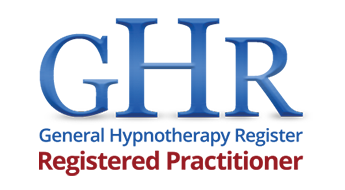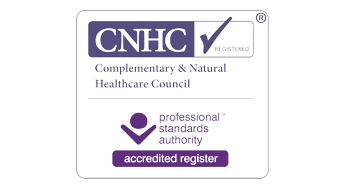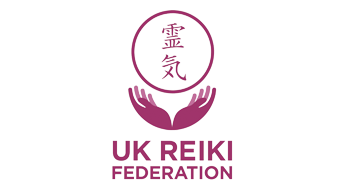New year's resolutions!
04th January 2020
It’s the time of year when many of us make new year’s resolutions - typical ones being; losing weight, quitting smoking, stopping drinking, joining the gym or promising to make time to de-stress/relax etc.
But how many of us commit fully to our promises and succeed in making lasting changes?
I’d like to explore with you some useful tips and the types of support you could access to help you succeed in achieving these goals:
1) Weight loss
Many of us aren’t happy with our weight and general health and often feel worse about this after Christmas and New Year celebrations.Here’s a few suggestions that may help you lose weight and improve your well-being:
Hypnotherapy can really help you change your relationship with food and address unhelpful eating habits. Most hypnotherapists offer weight loss programs or sessions and some offer ‘virtual gastric band programs.’ I offer a 4-week bespoke hypnotherapy program, which includes keeping a special food diary, exploring emotional states linked to your eating habits, your thought process, targeted bespoke hypnotherapy for your specific eating habits, goals and exercise aims and help with self-confidence/self-worth. For some, my ‘Virtual Gastric Band Program’ may be beneficial. Hypnotherapy works with your sub-conscious mind to change the way you think and feel about food, lose weight and maintain your target weight.
Seeking GP advice - it’s always advisable to consult with your GP to see if there are any underlying health issues affecting your weight and to seek any nutritional/dietary advice or available support.
Join a slimming club - this is not for everyone, but many find the advice, diet plans and group support effective. However, I question the long-term benefits as I don’t feel they address the root cause of weight gain.
Join a gym, fitness class or exercise regime - an important part of effective weight loss includes getting healthier/fitter and that means exercise. Again, it may be worth seeking professional advice from your GP before embarking on any radical exercise change. It may also be helpful to seek support from a personal trainer, who can create a specific exercise regime just for you.
Friends and family support can be invaluable. Getting those around you on board with your dietary changes can really help.
2) Quitting smoking
Many of us want to kick bad habits as part of our New Year plan - one of them may be stopping smoking. Here’s a few suggestions that may help you break the habit:
Hypnotherapy can be extremely effective in helping you to quit. If you’re truly ready to stop smoking, hypnotherapy can help you achieve this. Most hypnotherapists offer this service - I offer a 2 hour ‘Quit Smoking Session’ and clients who are ready to stop smoking leave the therapy space as a non-smoker. The session is bespoke, targeted around your specific habit and reasons for quitting.
See your GP - seek help/support from your GP surgery - often free advice and support is available to help you to quit.
‘Stoptober’- an initiative run each October to help you quit with on-line resources and support.
Nicotine reduction products such as patches and gum can help with nicotine cravings whilst you reduce your smoking habit. Whilst the health benefits of electronic vapes is debateable, some find these helpful in enabling them to quit smoking.
3) Stop drinking
‘Dry January’ - often people do ‘Dry January’ to help reduce their alcohol intake and detox after Christmas festivities. Sometimes feeling part of something bigger can really help.
GP support - some people find reducing or stopping alcohol relatively easy but if you feel your drinking habit is an issue you should seek professional support from your GP or specific local support groups, to ensure you reduce your alcohol intake safely. If you drink to excess, just stopping can be dangerous, so a safe reduction program is essential.
AA - again, if you feel you have a drink issue consider contacting Alcoholics Anonymous - joining a support group and following their ‘12 step program’ can really help you address your issues and reduce/stop drinking.
Counselling & Psychotherapy can help you explore and understand your drinking habits, in a safe and non-judgemental environment.
Friends and family support can be invaluable. Cutting down drinking as a group takes away the ‘peer pressure’ element.
4) Exercise classes/joining a gym
Again, lots of people feel the urge to get fitter after Christmas and often subscribe to the local gym or join fitness classes, running clubs etc. The issue can often be maintaining your new regime.
Do something you enjoy - it can really help to pick something you enjoy and be realistic with dedicating time to your new venture.
Be realistic - don’t set un-realistic goals of hitting the gym every night if work/family commitments would make this un-achievable. Sometimes, simple things like walking or cycling to work or walking the dog for longer can be easy achievable goals.
Friends and family support - exercising with friends or family can be a real incentive and support.
5) De-stress/relaxation
Most of us intend to take more time to relax and de-stress, but how many of us put this into practice? Finding ways to de-stress and relax that work for you are just as important as maintaining a healthy diet and exercising. Simple things like reading, drawing, painting, country walks can help us all to un-wind and de-stress.
Have you considered counselling/psychotherapy, mindfulness, meditation, holistic therapies or hypnotherapy?
Counselling & Psychotherapy can really help you ‘offload’ your stresses and help you learn effective techniques and strategies for stress management. Mindfulness, meditation and relaxation techniques can be explored in sessions, which you can then deploy in your own time.
Mindfulness - there are many mindfulness apps and free on-line resources you can tap into. Also let’s not forget reading, knitting, drawing, cooking, painting and gardening are all mindfulness practices!
Meditation can be so effective in helping reduce stress and help reach a state pf total relaxation. Meditation groups can be beneficial or simply learning techniques that work for you from on-line resources/apps or professional support can help you incorporate meditation into your daily life.
Holistic therapies such as reiki, reflexology, aromatherapy, sound healing and massage can be great ways to achieve total relaxation and de-stress.
Hypnotherapy can be such an effective way of relaxing. Deep relaxation techniques are used in the process to help you reach ‘an altered state of awareness’ leaving you feeling re-freshed and de-stressed. Clients can also learn self-hypnosis techniques and record sessions for them to use again at home.
So, my message is … keep any new year resolutions realistic and seek professional help and support as needed, as this may make the difference between you succeeding in long term change or giving up after a few weeks.
Let’s make 2021 a positive year and one in which you can achieve your hopes and dreams!
''No matter how hard the past, you can always begin again''
- Buddha






